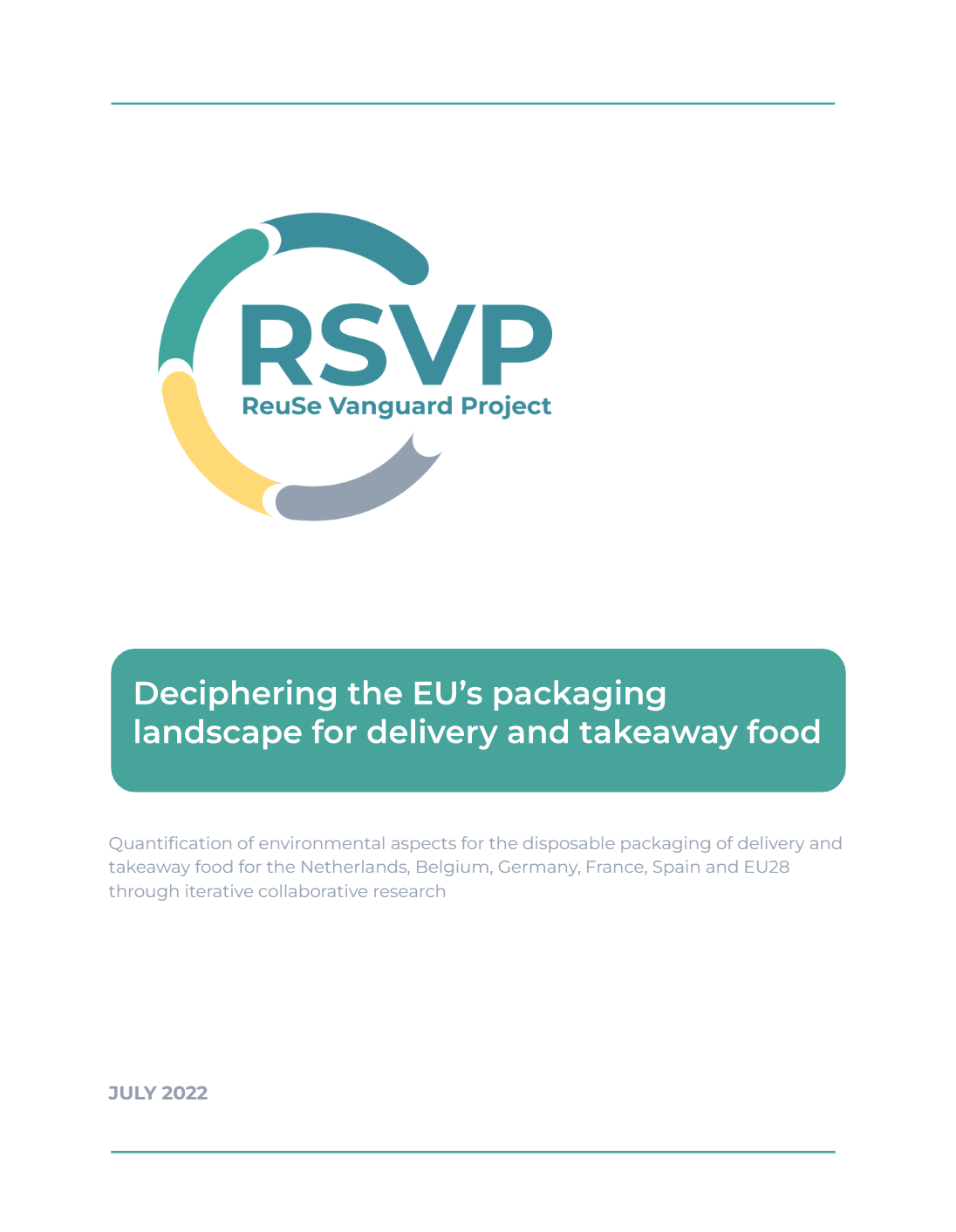
This report is part of a broader study commissioned by Zero Waste Europe to Recycling Netwerk Benelux (RNB), as part of a European project – called the ReuSe Vanguard Project (RSVP) – which includes stakeholders from 5 European countries, namely Belgium, The Netherlands, Germany, Spain and France.
With the broader study, we aim to highlight the findings related to the concrete packaging sectors that present the biggest potential in terms of their environmental impacts as well as the feasibility of replacing single-use with reusable packaging in the coming years. This dedicated report gives more detailed results of the first part, which relates to the packaging used for delivery and take-away food.
Available in English.
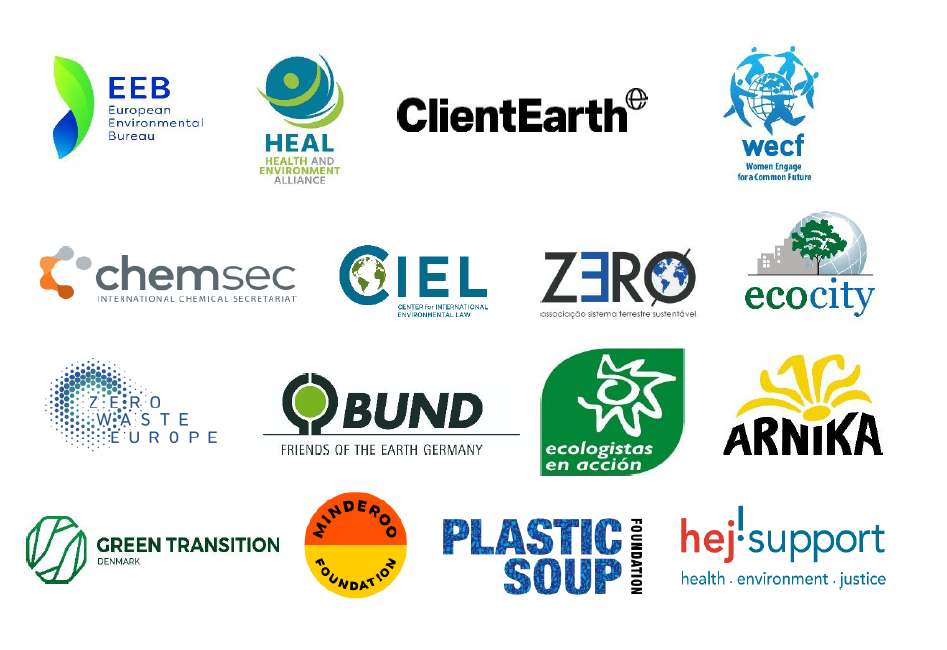
In this letter led by the European Environmental Bureau (EEB) to the REACH Committee, ZWE joined a wide group of NGOs advocating for health and environmental protection. The letter flags the outstanding issue of delays in relation to the intentionally added microplastics and the lead in PVC restrictions, as well as the identification of resorcinol as a substance of very high concern (SVHC).
Available in English.
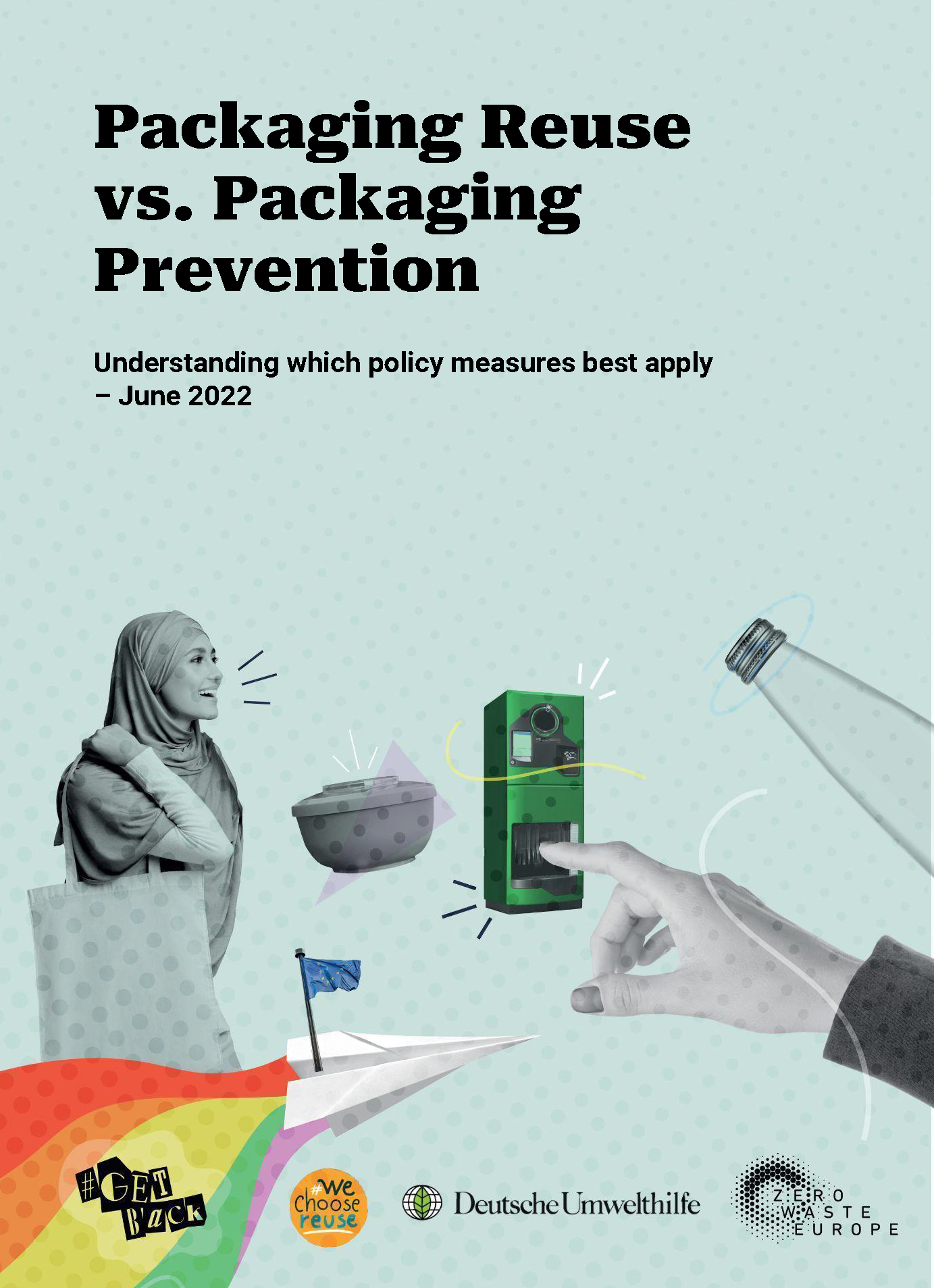
When dealing with packaging there seems to be a confusion between the actions referring to reuse and to prevention. Despite the fact that both contribute to reducing waste arisings, from a policy-making perspective, they should be treated as different concepts.
In view of the upcoming revision of the Packaging and Packaging Waste Directive (PPWD), this paper aims to clarify what should be defined as packaging reuse and what should be defined as packaging waste prevention and which are the policy measures that encompass one and the other.
Available in English.
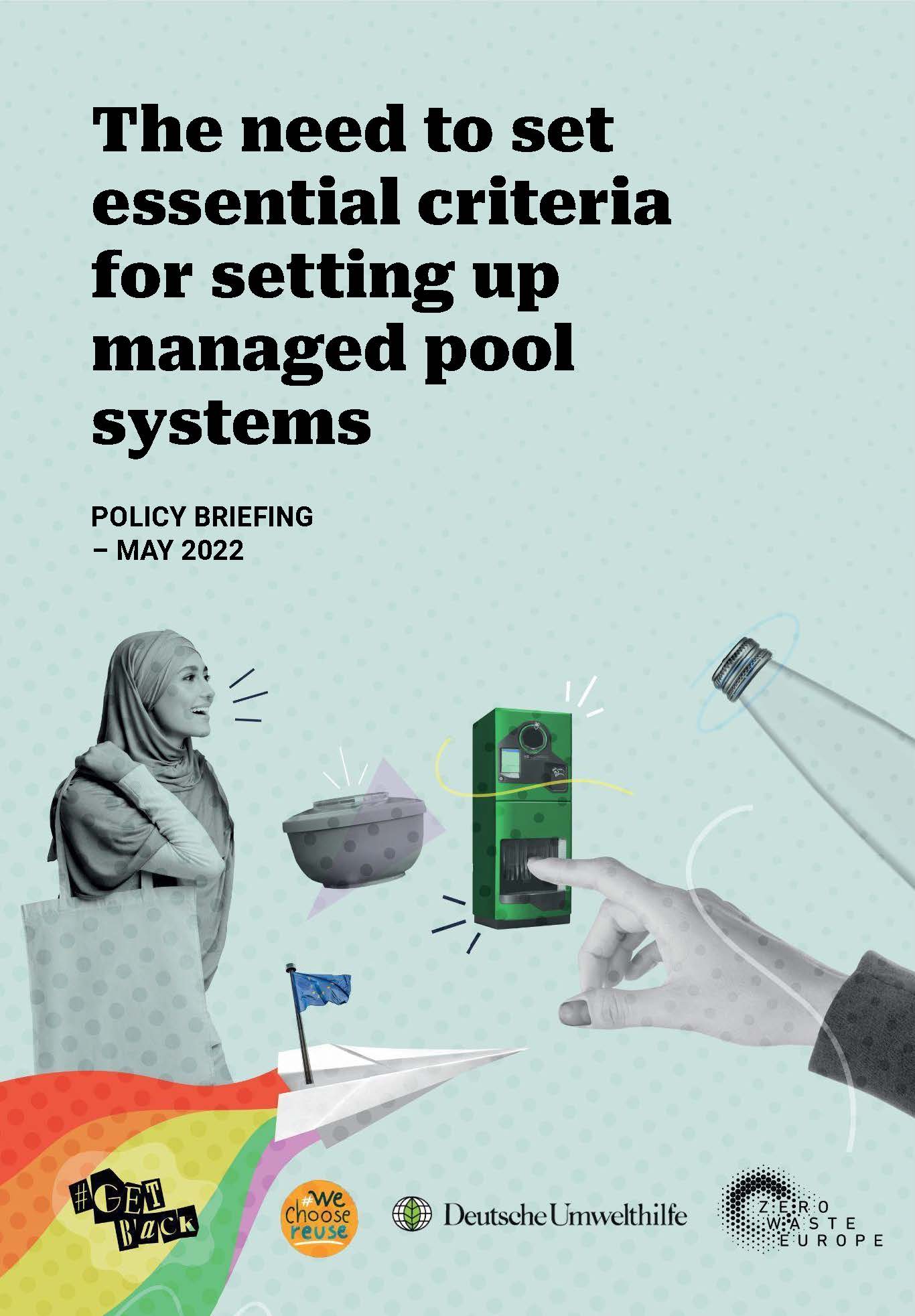
Well-managed pool systems for reusable packaging are a key instrument to make efficient and effective reuse systems work, and should be an essential accompanying tool to any reuse targets. This paper intends to provide guidance on this topic and propose policy proposals to take into account when creating EU legislation on reuse.
Available in English, German, French, Dutch and Spanish.
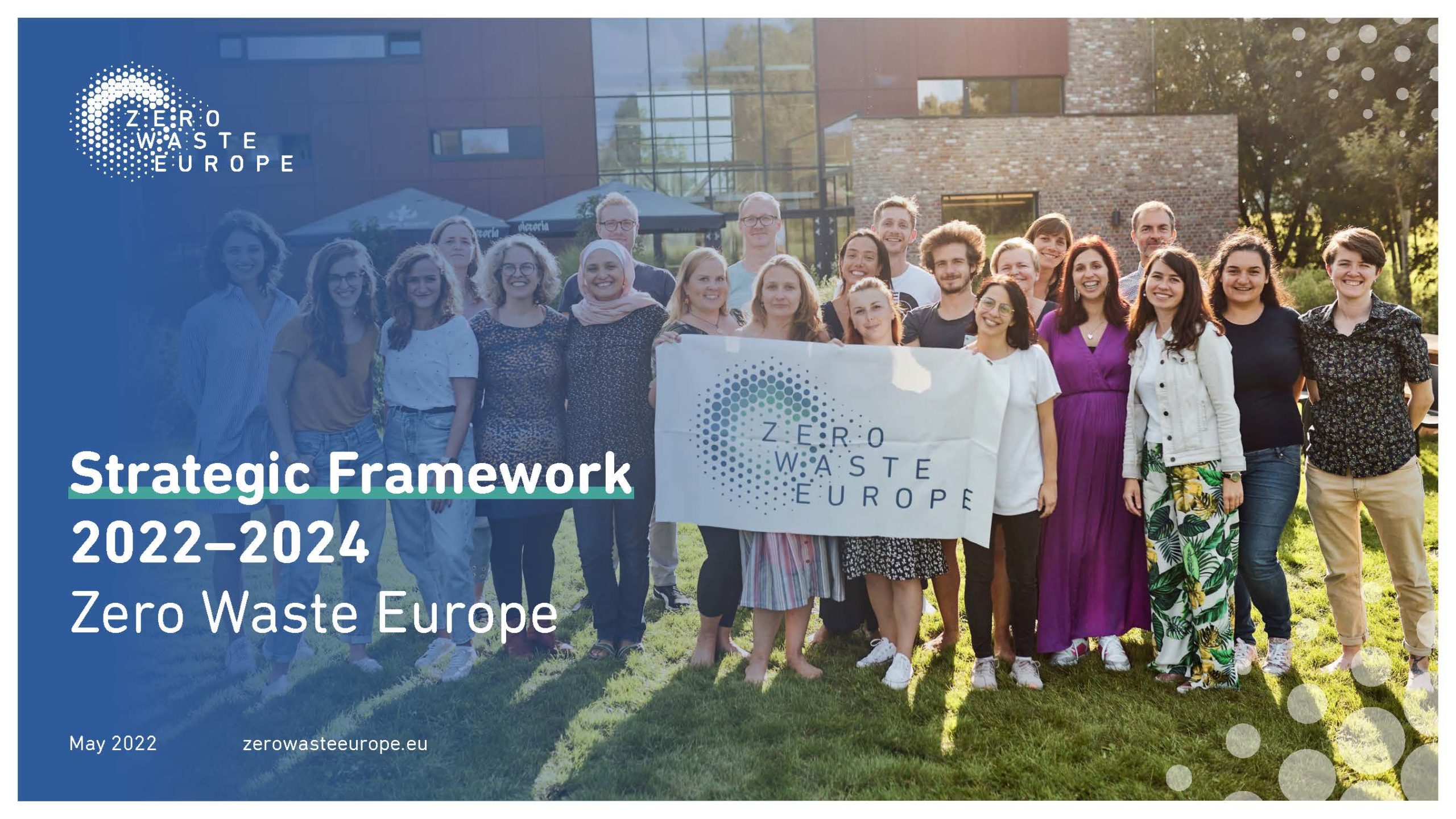
Europe is in the midst of a transition and zero waste is part of it.
Ten years ago, the concept of zero waste was laughed at. Today, zero waste is mainstream, from being considered a practical approach to implementing a circular economy to a trending lifestyle globally. The efforts from civil society groups in Europe and around the world pushed the debate higher in the waste hierarchy. If at any time over the last twenty years reuse and prevention had a chance, it is now. And ZWE is committed to bringing that change forward.
From a content perspective, for the next 3 years, we will focus on bringing IN incentives and funding for the transition, phasing OUT toxics, lifting UP reuse, pushing for BETTER recycling and bringing waste disposal DOWN.
Our Strategic Framework for 2022-24 outlines the ZWE roadmap and goals for the coming years, with the ultimate aim of helping us achieve a zero waste future for Europe (and for the world, while we’re at it).
Available in English.
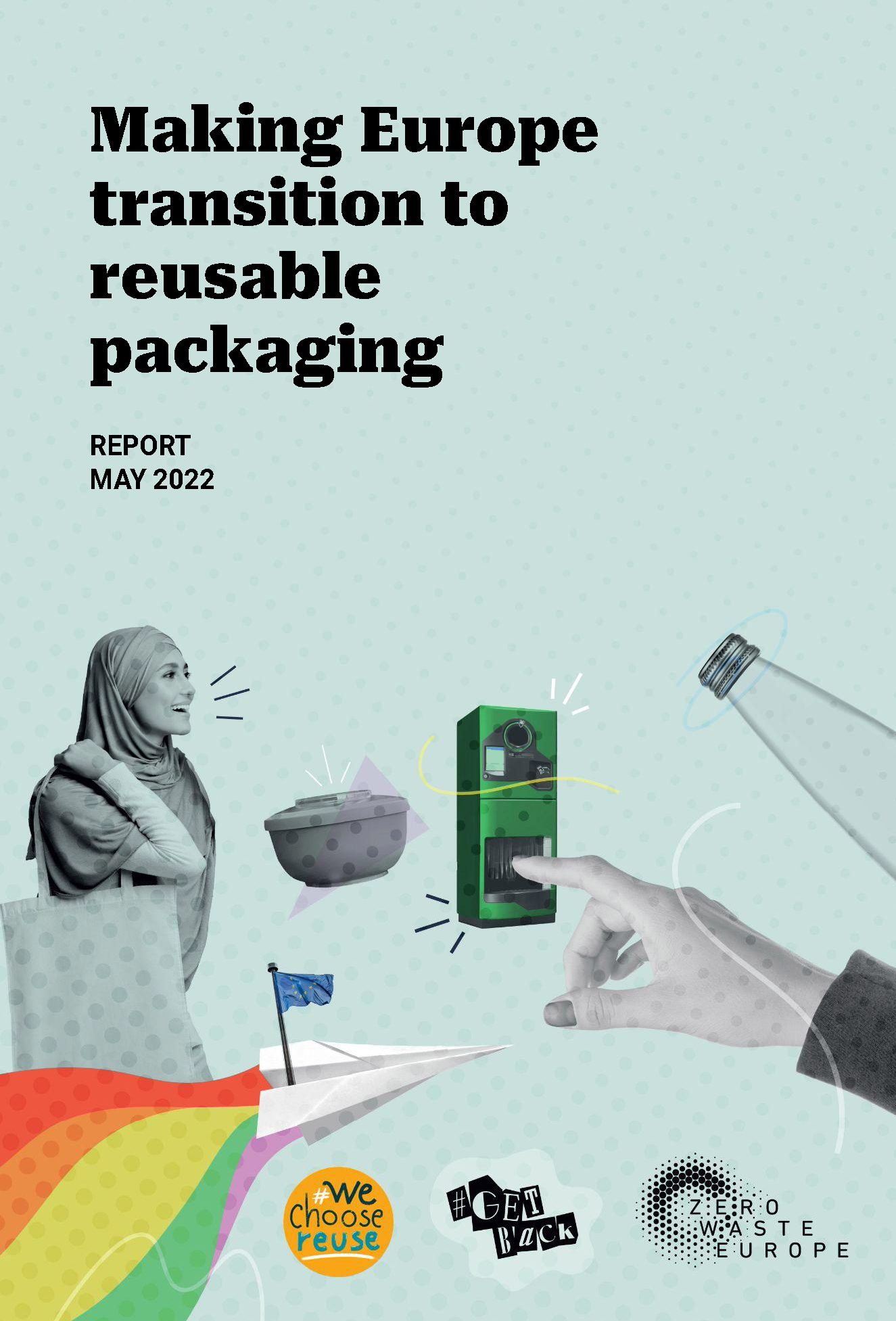
The clear limitations of single-use packaging are being exposed, and reusable packaging is now standing high on the agenda of policy-makers and key market players.
This report aims at bringing the evidence needed (from a quantitative and qualitative aspect) for determining the product categories that are most suitable for the transition of some packaging from single-use to reusable options.
Full report and policy recommendations are available in English. Executive summary is available in English, French, German, Dutch and Spanish.
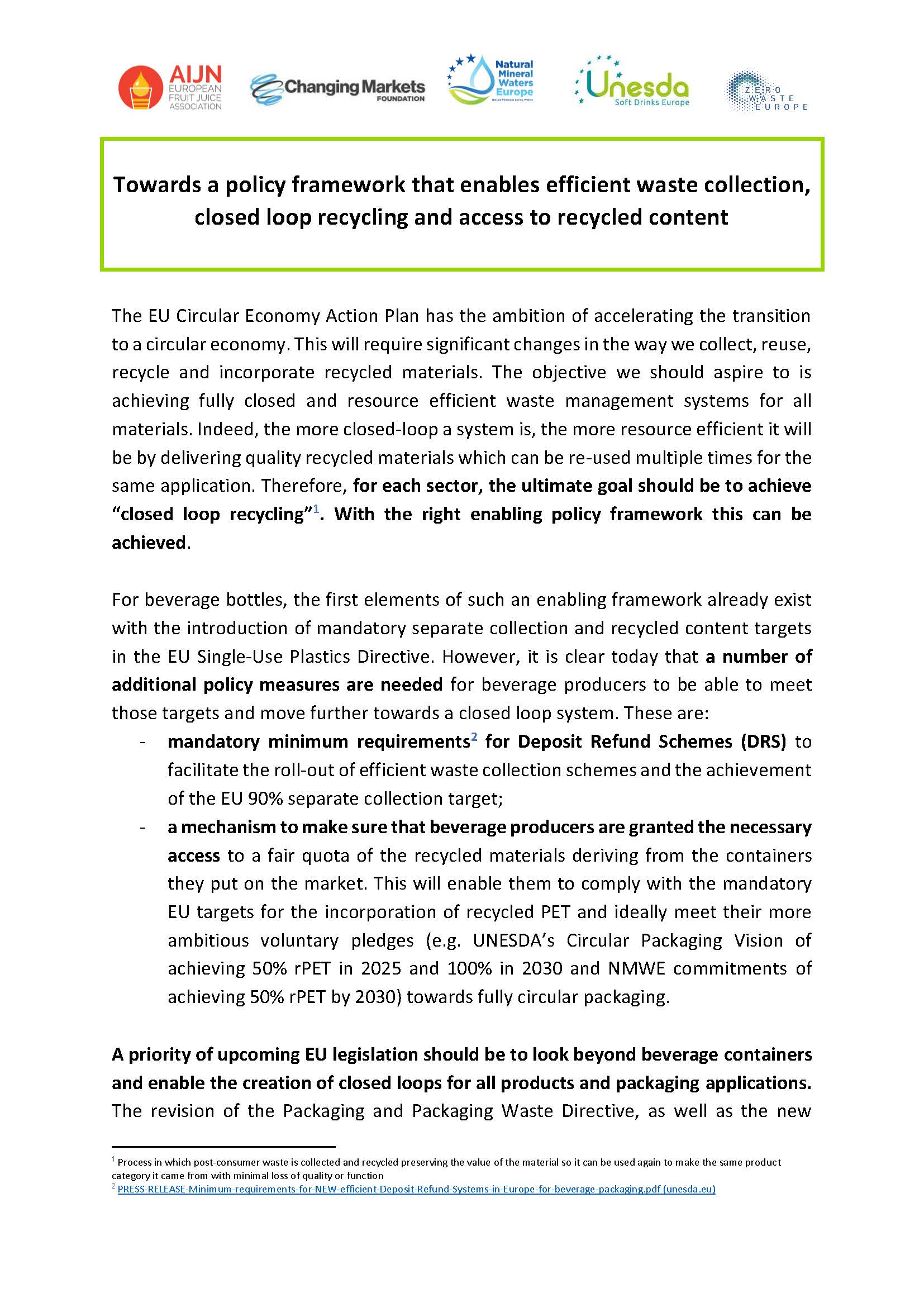
This joint statement between Zero Waste Europe, UNESDA, Natural Mineral Waters Europe, Changing Markets Foundation, and AIJN – European Fruit Juice Association calls on EU decision-makers to create the right enabling policy framework to help accelerate the transition to a circular economy in Europe.
Available in English.
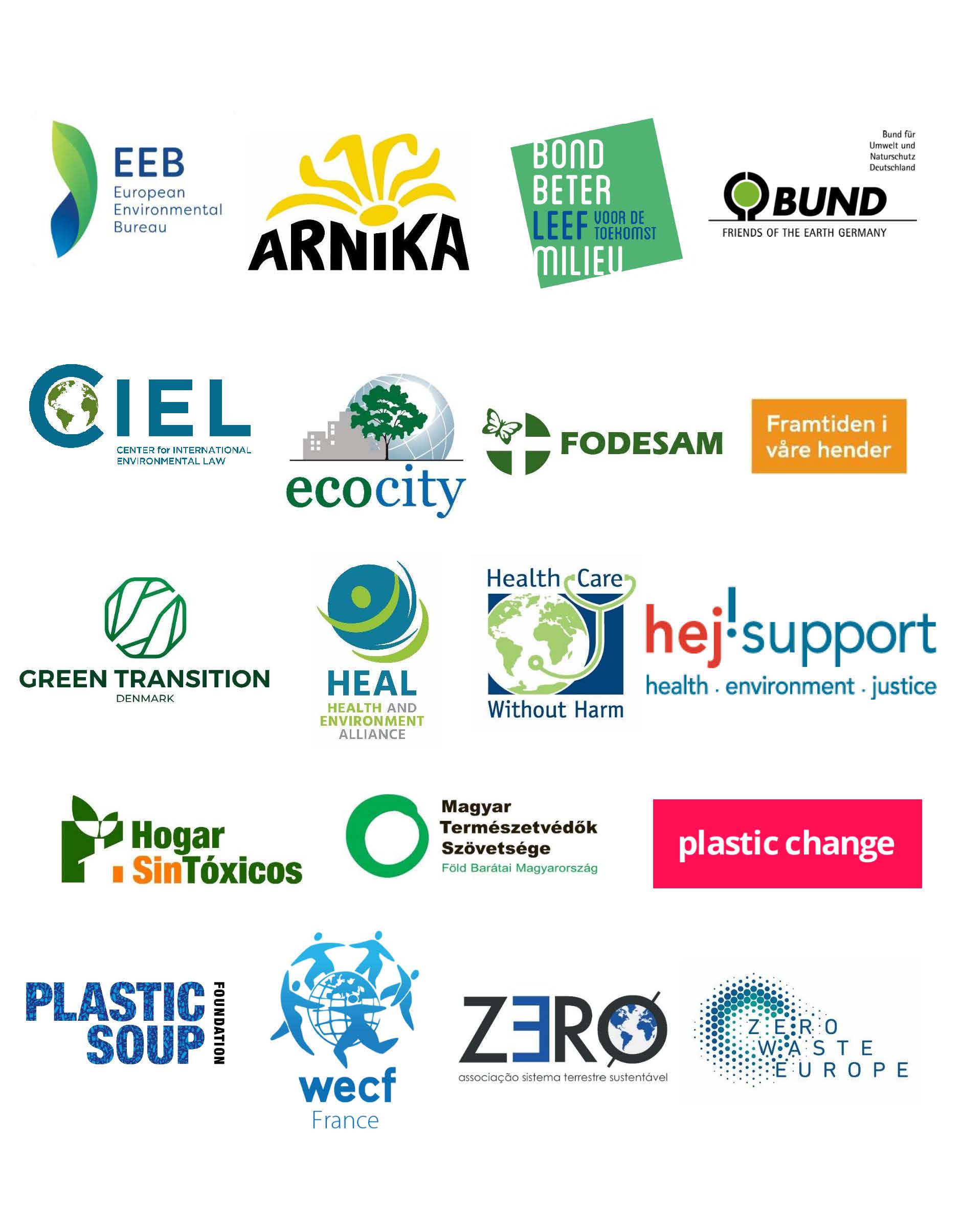
With this paper, the European Environmental Bureau (EEB), Zero Waste Europe, 17 other health and environmental NGOs provide a position on key priorities and recommendations in the context of the REACH revision. This revision must focus on accelerating, simplifying, and making regulatory processes for chemicals of concern less burdensome for the authorities.
Available in English.
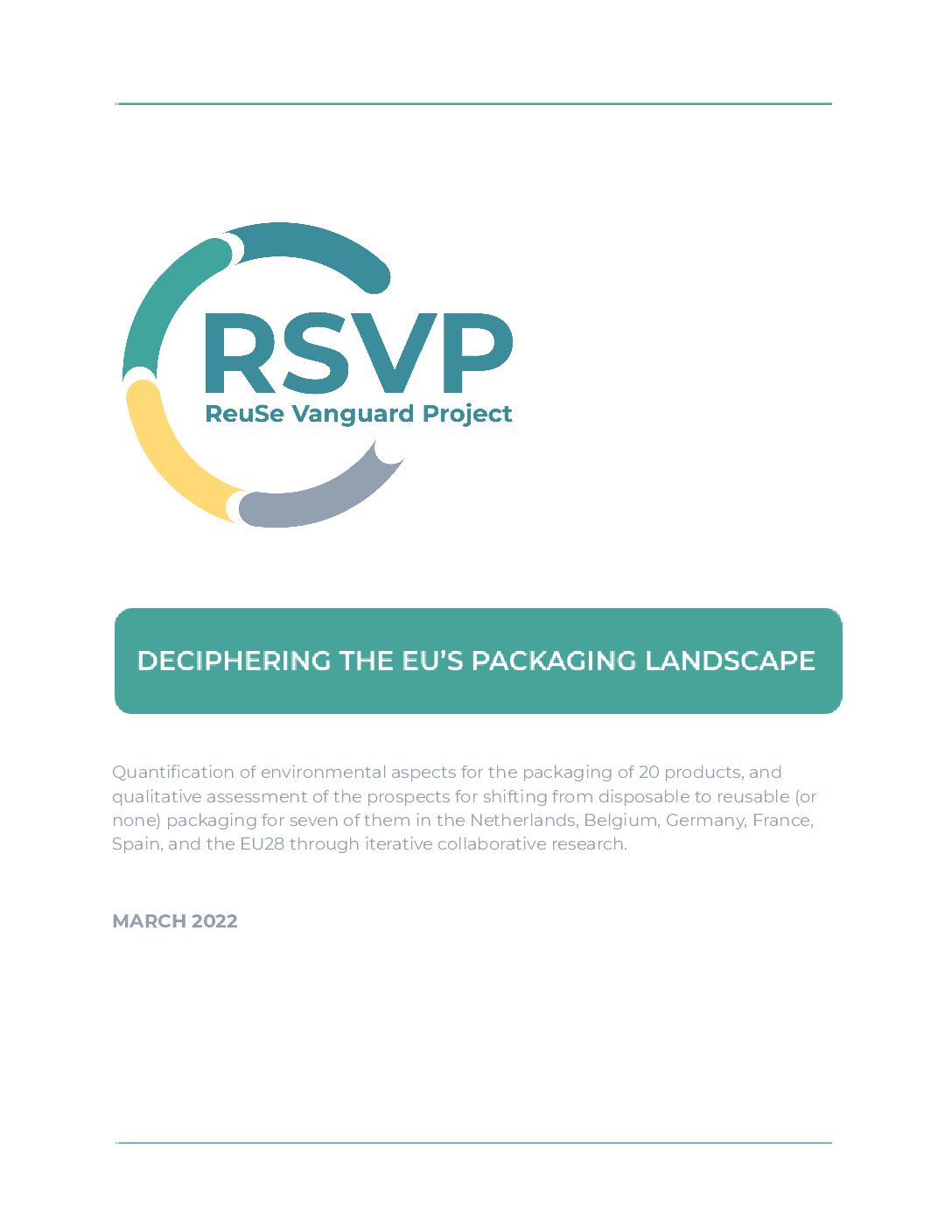
In spring 2021, Zero Waste Europe (ZWE) started the ReuSe Vanguard Project (RSVP). The goal of RSVP is “Reusable solutions for packaging for beverages, take-away drinks, and food as well as online delivery to get to scale in Europe and become the new normal in the sectors selected”. An essential part of RSVP is to “map the packaging landscape in Europe and detect the Ecosystemic Leverage Points (ELPs)” through an iterative collaborative research. ZWE tasked Recycling Netwerk Benelux (RNB) to take the lead in this iterative collaborative research.
Out of the 20 original products, seven were selected for additional qualitative assessment, namely: cleaning agents, dry food, soda drinks & (sparkling) water, postal services, take-away & delivery meals, take-away warm drinks, and wine.
Available in English.
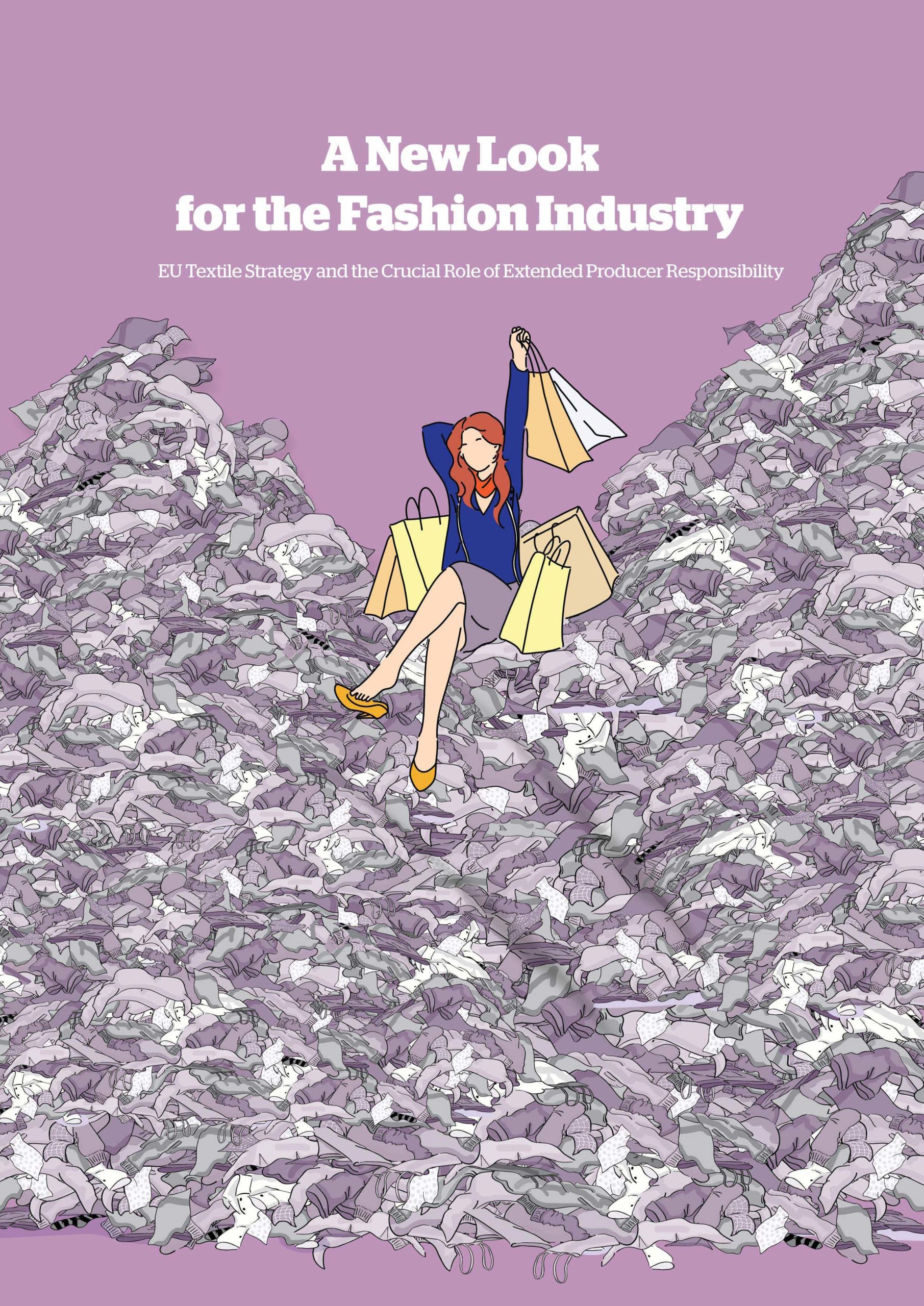
In the first half of 2022, the European Union (EU) will take the first steps in becoming a global leader in taking on an ugly problem: fast fashion and its mountains of waste.
The EU will become the first world region to target the flaws in fashion so directly, with regulations that promise to improve the circularity of textiles; stop overproduction; empower consumers to make more responsible choices; and make fashion brands accountable for their massive waste problem.
This political briefing by Changing Markets Foundation, the European Environmental Bureau, and Zero Waste Europe focuses on Extended Producer Responsibility (EPR), a powerful market-based tool that is expected to be at the centre of the European Commission’s upcoming Textiles Strategy.
Available in English.
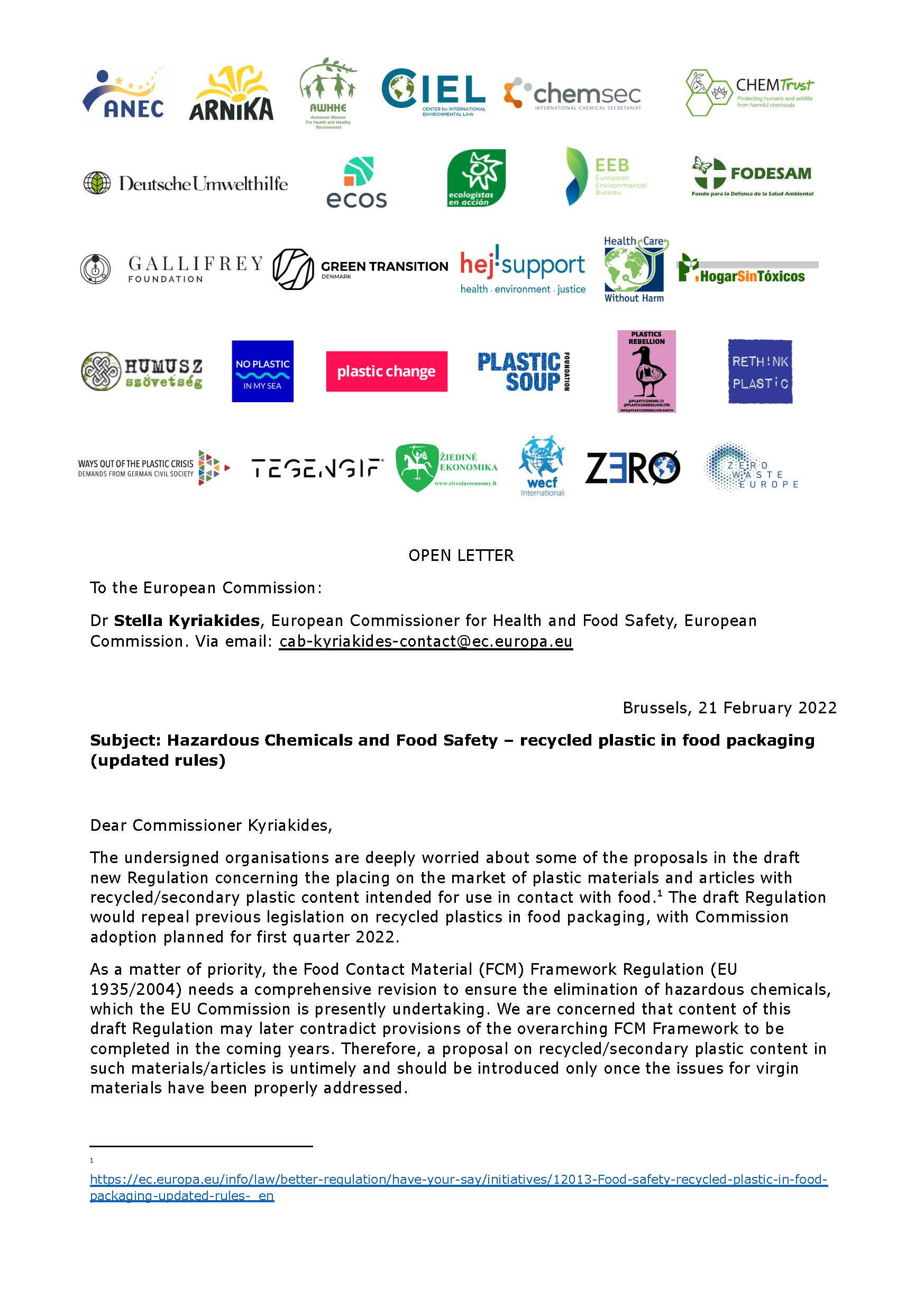
Zero Waste Europe and 27 other civil society organisations across Europe have sent an open letter to the EU Commissioner for Health and Food Safety, Stella Kyriakides, stating their concerns about some of the proposals in the draft new Regulation concerning the placing on the market of plastic materials and articles with recycled/secondary plastic content intended for use in contact with food. The signatories also urge the EU Commission to delay this proposal on the grounds of safety assurance.
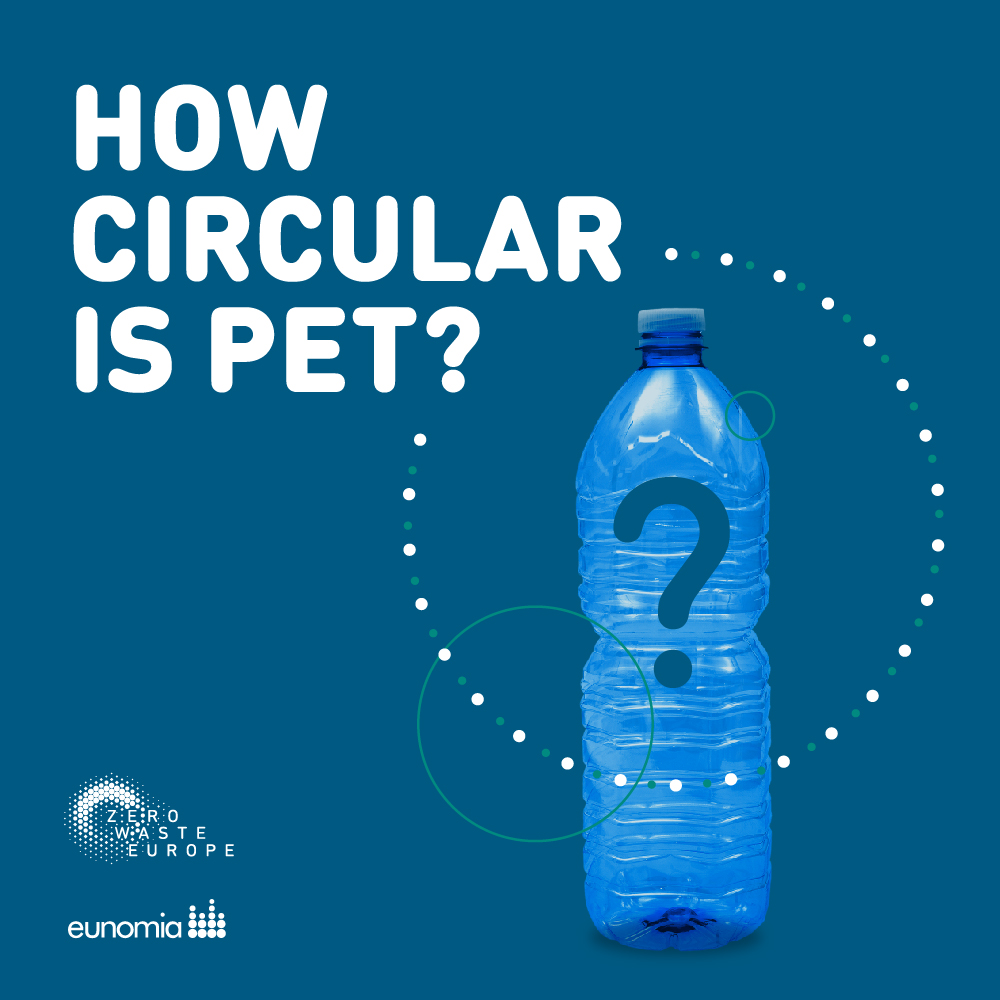
In a report commissioned to Eunomia by Zero Waste Europe, we bring you an analysis of the true state of circularity of Polyethylene terephthalate (PET) in bottles in Europe – including how much material from bottles is collected for recycling; how much of it is actually recycled; and how much of recycled PET is put into new bottles.
Full report available in English.
Executive Summary available in English, Croatian, German, and Hungarian.
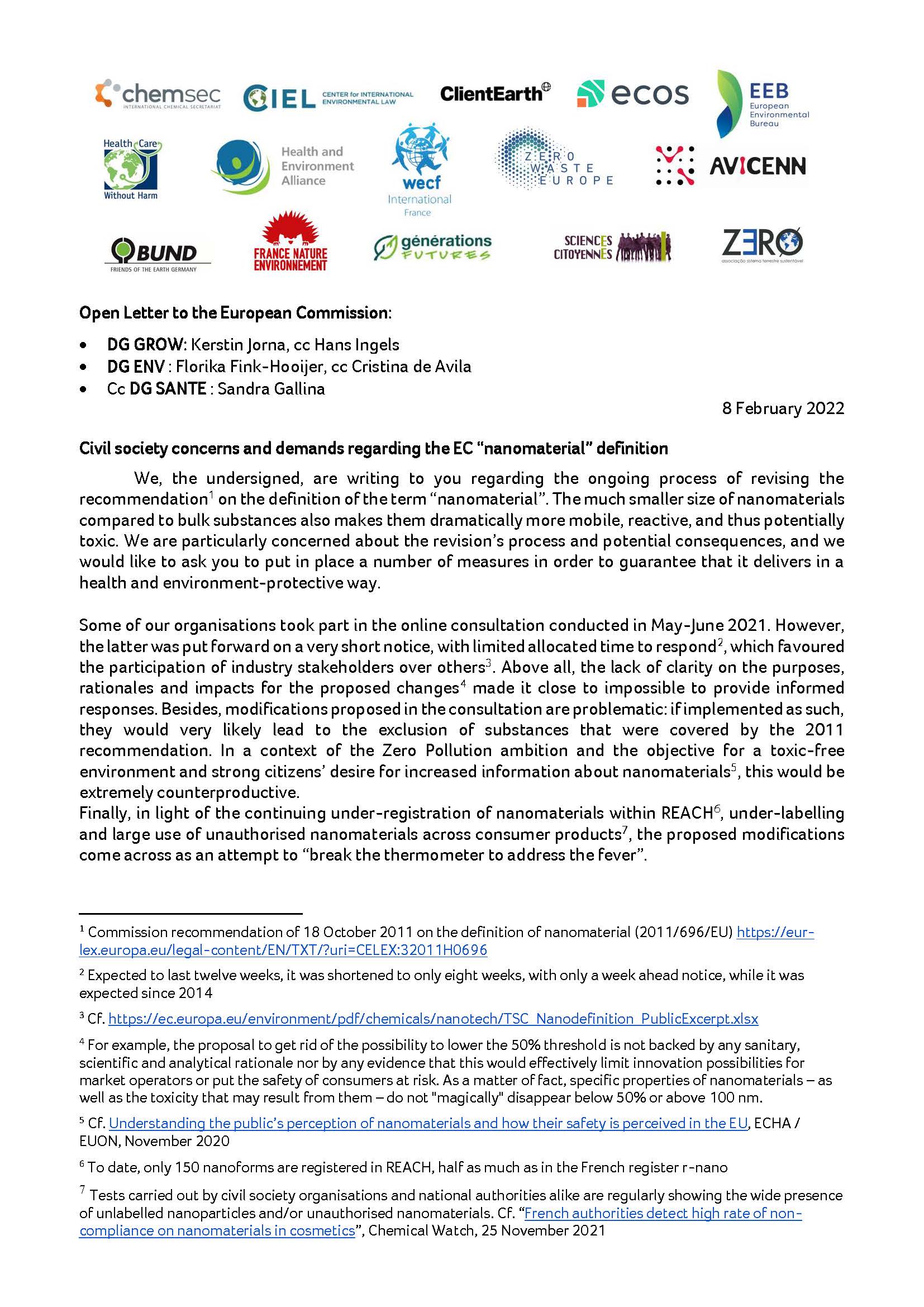
Zero Waste Europe joined 14 other organisations in calling the European Commission to properly and collectively scrutinise the ins and outs of the changes proposed (as well as those that have not been considered) to the definition of “nanomaterial”.
Available in English.
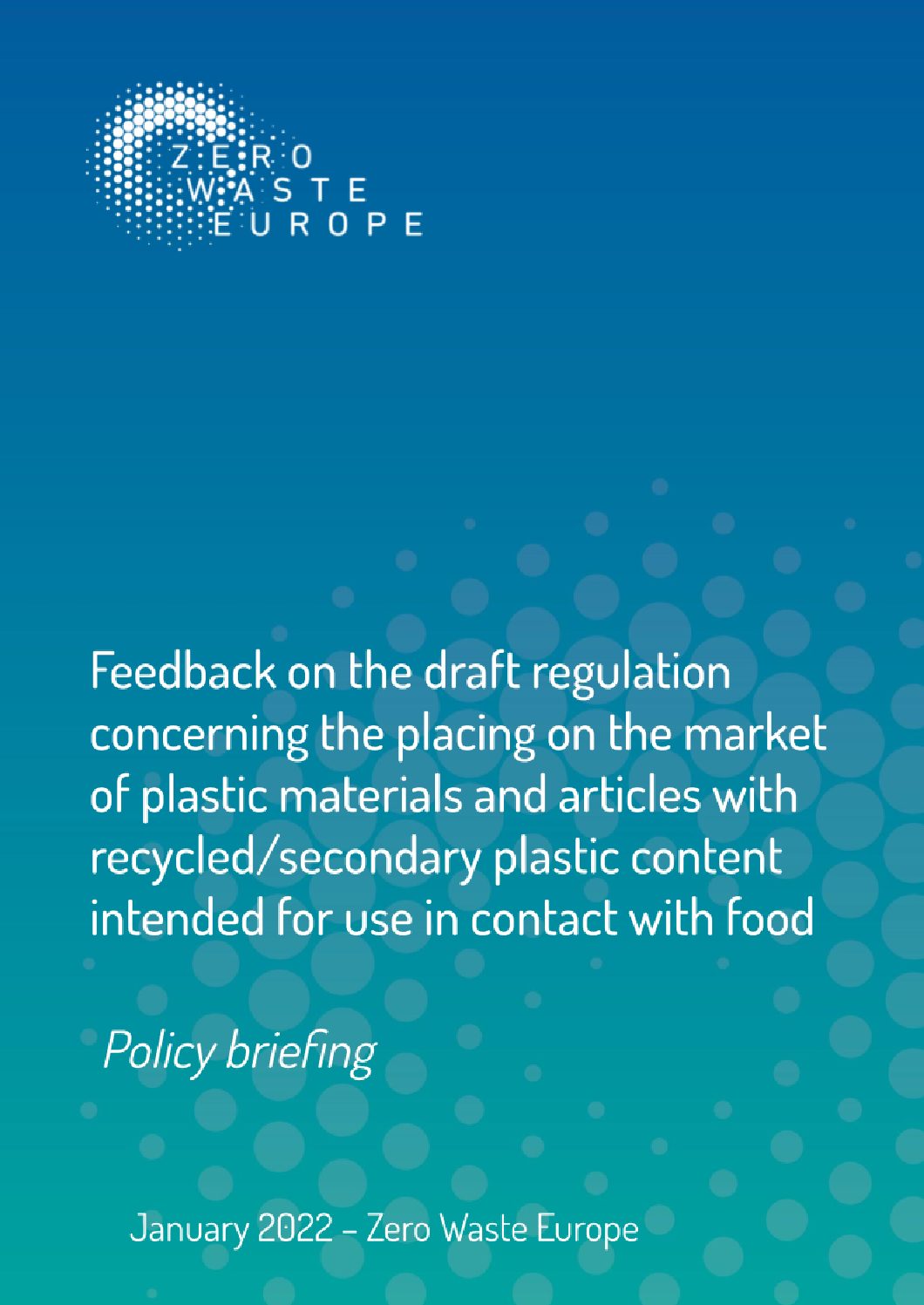
Zero Waste Europe provided a response to the European Commission’s consultation to the draft regulation concerning the placing on the market of plastic materials and articles with recycled/secondary plastic content intended for use in contact with food.
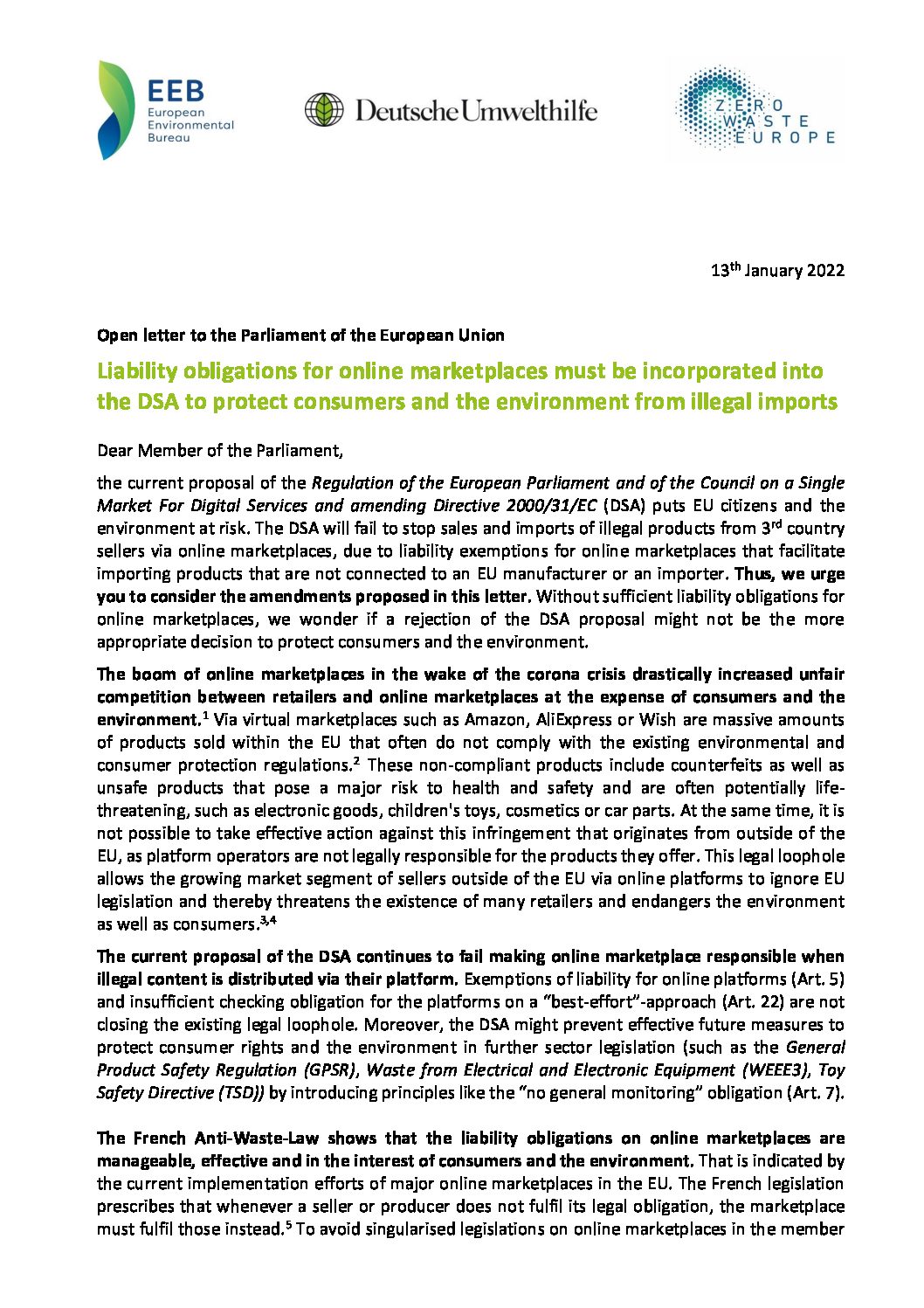
With the current proposal of the Digital Services Act (DSA) continuing to fail making online marketplace responsible when illegal content is distributed via their platform, Zero Waste Europe joined Deutsche Umwelthilfe and the European Environmental Bureau (EEB) in a joint letter to European Parliament asking for significant and impactful amendments.
Available in English.
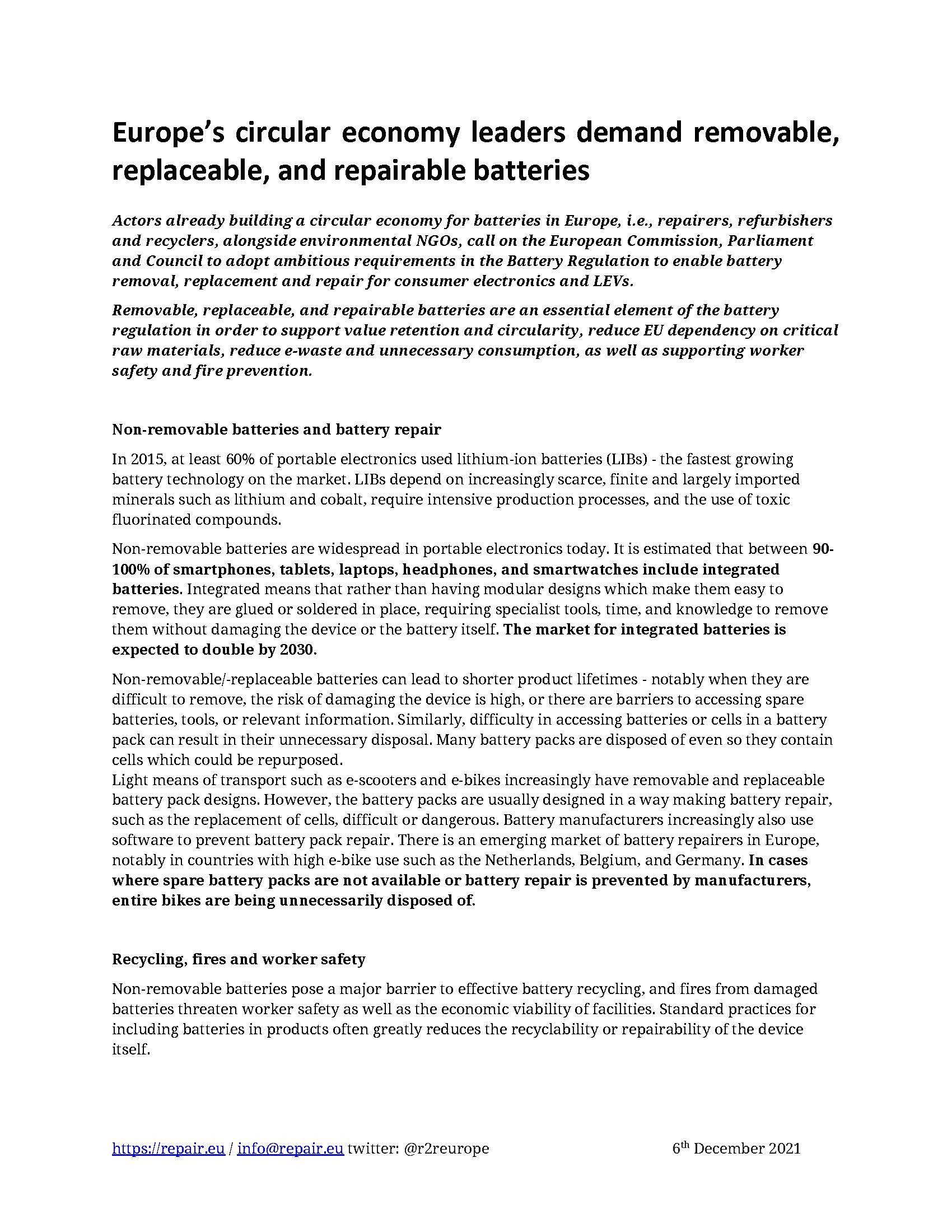
In a statement led by EEB, Zero Waste Europe and 21 other organisations call on the European Commission, Parliament and Council to adopt ambitious requirements in the Battery Regulation to enable battery removal, replacement and repair for consumer electronics and LEVs.
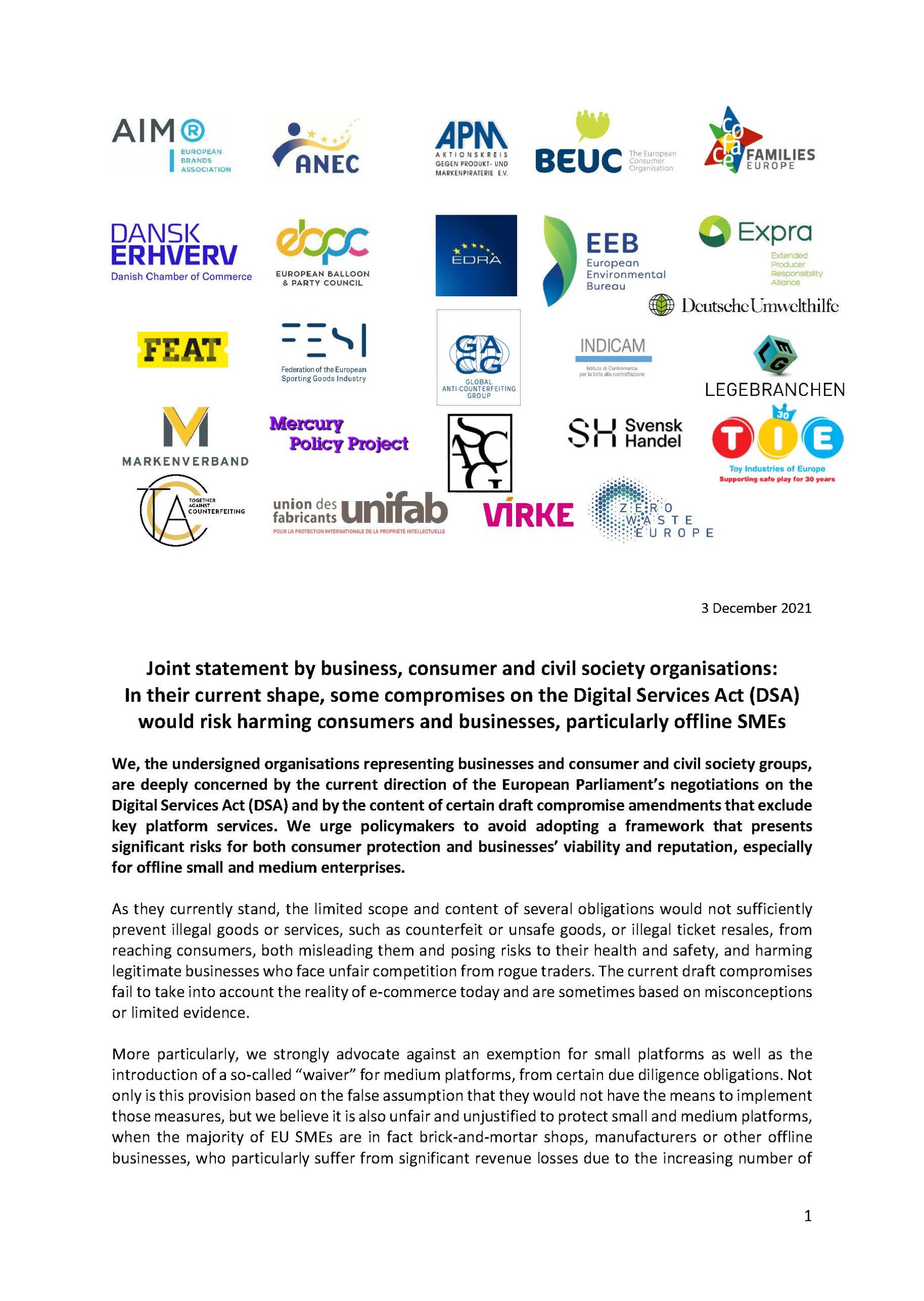
In a joint statement spearheaded by BEUC, ZWE and 23 other organisations representing businesses and consumer and civil society express their deep concern about the current direction of the European Parliament’s negotiations on the Digital Services Act (DSA) and by the content of certain draft compromise amendments that exclude key platform services. We urge policymakers to avoid adopting a framework that presents significant risks for both consumer protection and businesses’ viability and reputation, especially for offline small and medium enterprises.

Zero Waste Europe joined the European Environmental Bureau (EEB) and 12 other organisations to request a restriction on all forms of lead-contained in PVC by setting equal-stringent thresholds for lead in virgin and recycled PVC.
Available in English.

















